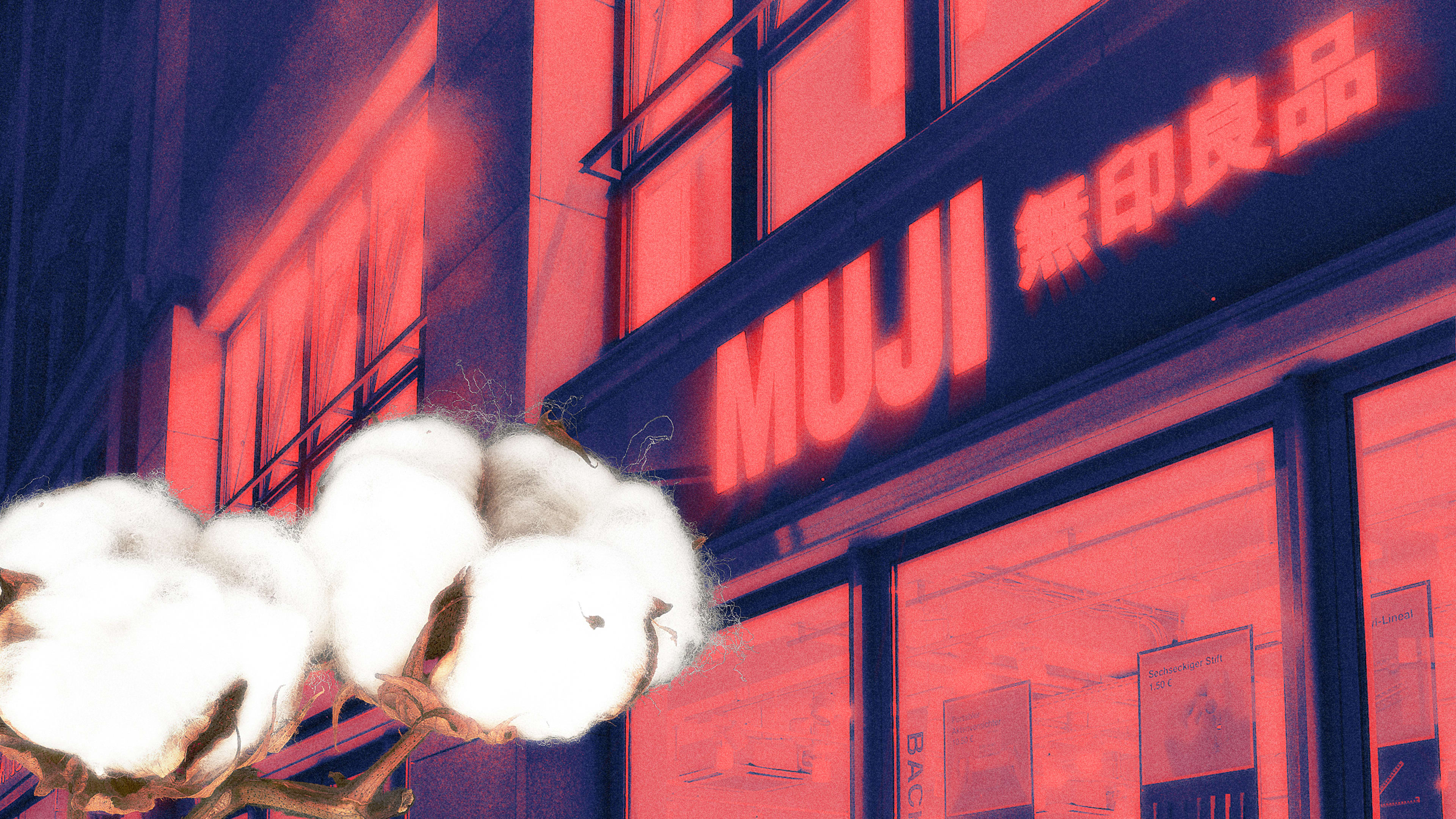Xinjiang, a region in Northwest China, produces a fifth of the world’s cotton. Researchers have found that since at least 2018, the Chinese government has coerced upward of 570,000 ethnic minorities to do the grueling work of picking the cotton by hand.
This cotton ends up in garments all over the world. Since the start of the year, brands like H&M, Nike, and Burberry have vowed to stop sourcing from Xinjiang, angering the Chinese government and Chinese shoppers. Muji, a Japanese fashion and home goods brand, has taken the opposite approach. On its Chinese website, it prominently advertises that its garments are made from cotton that comes directly from Xinjiang, earning the praise of some Chinese consumers on social media.
According to The Wall Street Journal, half of Muji’s revenue outside of Japan comes from China, and the brand aims to have more than 300 stores in the country by August. While it does have a presence in the American market, it makes only a fraction of its global sales here and it filed for bankruptcy in the U.S. last summer. “Muji is not as well-known in the U.S. as it is in China,” says James Millward, a professor of Chinese history at Georgetown University who recently published a policy paper about Xinjiang for the Brookings Institute. “It has more to lose by angering China.”
But Millward points out that China and Japan have a complicated history and it has taken decades for the two countries to develop a strong economic relationship. This year, China surpassed the U.S. to become Japan’s top trading partner. But for much of the 19th and 20th centuries, the two nations were perpetually at war. “Japan is in a tricky position and has to be careful in how it deals with China,” he says. “This is partly because they’re in the neighborhood and they go back a long way.”
Muji’s decision is part of a broader trend of multinational brands feeling pressure to pick a side when it comes to Xinjiang. This past January, the U.S. government called China’s treatment of Uyghur Muslims in the region “genocide.” In official documents, it points to satellite imagery and eyewitness testimony revealing that more than 1 million Uyghurs and other ethnic minorities are being arbitrarily detained in concentration camps. “The People’s Republic of China has created a perfect storm of bad policy by knitting together prisons and camps with the single most important economic export of the region,” Millward says.
The Chinese government has rejected these claims, calling them lies. In March, H&M released a statement that said it would stop sourcing from the region, and China reacted with fury. By the end of the month, H&M was effectively wiped off the Chinese internet. Six weeks later, it still has not been reinstated online.
Given that 6% of H&M’s total revenue comes from China, speaking up about Xinjiang has likely resulted in a financial hit. (We reached out to H&M to confirm but did not receive comment by publication.) But Millward believes that the widespread media attention caused by the incident ultimately created more awareness about the problem. “The blowups in China over H&M and Nike have been very positive,” he says. “It got the world talking and worrying about the issue. It forced the Chinese people and leadership to think about it.”
Muji’s stance could not be more different. When we reached out to its parent company, Ryohin Keikaku, a spokeswoman pointed me to a corporate statement saying that it had conducted an independent audit of more than 12,000 acres of farms and other facilities in the Xinjiang region in 2020 and it had “not identified any material violations of laws and regulations”. Muji said its use of organic cotton from the region was “increasing employment opportunities in the region, and are helping to improve the lives of people who work there”. The company has not faced much pushback for taking this position besides a small group of activists protesting in front of Muji’s Toyko headquarters in early April.
By pushing back against China’s treatment of the Uyghurs, Millward says brands can bring important attention to the crisis in Xinjiang. “The goal is not simply to shame China or signal virtue,” he says. “The goal is to stop these horrible things being done to Uyghurs and other minorities in Xinjiang. Corporations can communicate that these practices need to be absolutely abolished for business to continue as usual.”
Recognize your brand’s excellence by applying to this year’s Brands That Matter Awards before the early-rate deadline, May 3.
